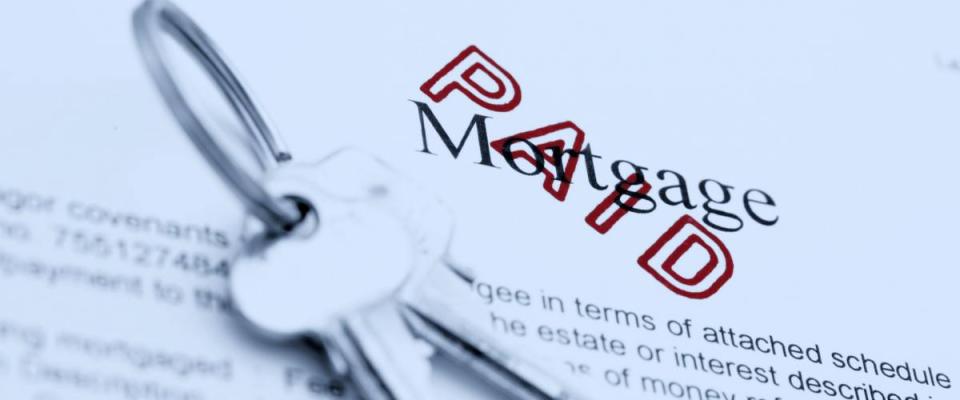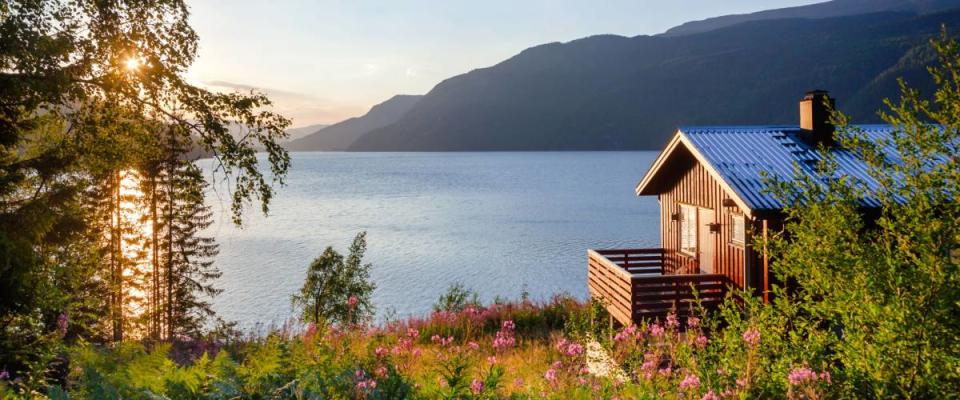Are You Ready to Buy a Vacation Home?

With mortgage rates falling, you may be thinking more seriously about buying that vacation home you've always dreamed of.
Having a place of your own at your favorite getaway spot -- where you can spend weekends, summers and your retirement -- sounds fantastic. But is it achievable?
Americans own 7.4 million second homes, according to the most recent estimate from the National Association of Home Builders. Buying one is a huge decision and a serious financial commitment.
Is it something you can afford? Can it be a good investment? Here’s how to decide if you should buy a vacation home.
Financing a vacation home

You might be ready to buy a second home if you've paid off your first mortgage
Financing a vacation home can be tricky: Mortgage rates are higher than for first homes, a lender may demand a higher credit score, and the loans often require a larger down payment — as much as 30%.
Given the hurdles, some real estate experts say don't buy a second home unless you can pay cash. That's what many people do: A 2017 research study from the National Association of Realtors found 29% of vacation homebuyers pay cash, vs. 13% of primary homebuyers.
You do have another option, if you own your primary residence outright or have built up a healthy amount of home equity. You might tap into your equity to pay for your vacation home — or at least fund the down payment.
You can access your equity using a cash-out refinance of your first home, a home equity loan or a home equity line of credit (HELOC).
But note that under the 2017 tax law, you can't deduct the interest. The IRS says you get a deduction only if a loan used to buy a second home is secured by that home — not by your primary home. (Womp womp.)
The benefits of owning a vacation home

If you rent out your vacation home, it can earn a passive income
Having a vacation home means spending less on hotels (no more of those annoying "resort fees"!) and vacation meals. You'll have your own kitchen for doing the cooking.
There may be other financial benefits, too.
Online vacation rental services such as Airbnb allow you to easily rent out your second home for weeks or months at a time when you're not using the place.
Your vacation property could become a steady source of income — especially if the house is close to a beach, ski hill or popular big city — and the rental income could help you pay off your loan faster.
You will have to pay tax on the income if you're renting out the place for more than 14 days out of the year, but you'll be able to deduct rental expenses including insurance, maintenance and utility bills, says the IRS.
A vacation home as an investment

A vacation home may grow in value, but it's not a guaranteed investment
Thinking any vacation home is likely deliver a big, fat profit when it's time to sell? That depends largely on that ol' real estate mantra: location, location, location.
A waterfront home in Florida might always be in demand, while an off-the-grid cabin in the woods may have much more limited appeal.
But no matter where the place is, a vacation home should never be thought of as a guaranteed investment.
Properties intended for use as vacation homes, maybe in oceanfront communities or skiing meccas, will always be seen as luxuries. Meaning that if the economy slows down, demand — and your ability to sell — could dry up overnight.
And consider whether any potential profit will be worth all of your costs, including ongoing maintenance, insurance and utilities. The place will be a year-round responsibility.
Ready to do it?

Make saving a priority
If you think you can handle the financial responsibility of a vacation home, make sure you're willing to revisit the same location year after year. If you already regularly vacation in a certain spot, buying a home there can be smart and enjoyable.
So, let's say you've weighed the pros and cons and have decided you do indeed want to become the owner of a vacation home. You'll need to make saving a priority — for the potentially hefty down payment.
The National Association of Realtors study we mentioned earlier found that the typical price paid for a vacation home is $200,000. If you find a place at that price and a lender requires 20% down, you'll need to come up with $40,000.
Take a look at your current income, and calculate how much you could put aside each month to reach your down-payment goal.
Then, check out today's best savings rates and find the account that will help you reach your goal the fastest.
Before you know it, you'll be popping open the champagne and toasting your new vacation home!

 Yahoo Finance
Yahoo Finance 